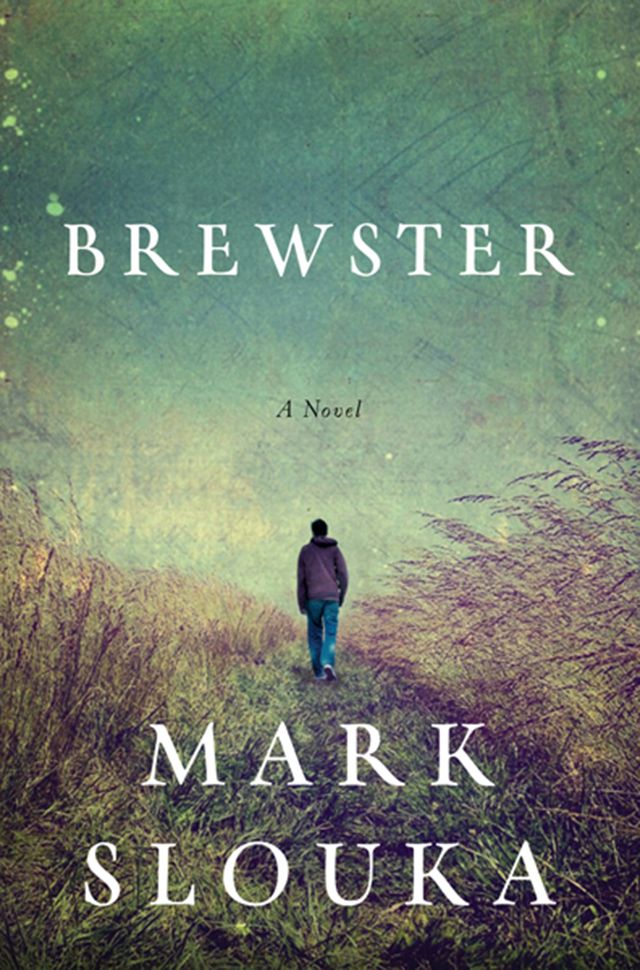
Brewster
A Novel
فرمت کتاب
ebook
تاریخ انتشار
2013
Lexile Score
800
Reading Level
3-4
ATOS
4.8
Interest Level
9-12(UG)
نویسنده
Mark Sloukaشابک
9780393240511
- اطلاعات
- نقد و بررسی
- دیدگاه کاربران
نقد و بررسی

Starred review from April 8, 2013
A simmering rage coupled with world-weary angst grip the four teenagers growing up as friends in Slouka’s (Lost Lake) hardscrabble novel, set in the small blue-collar town of Brewster, N.Y., where the author grew up. Jon Mosher—once a scholarship-winning high school track star, now a wistful, glum adult—narrates the group’s tragic experiences during the winter of 1968. Feeling alienated from his community and his parents, German-Jewish émigrés Sam and Vera, Jon first befriends the “erratic” Ray Cappiciano, who always looks banged up, supposedly from semipro middleweight boxing matches in out-of-town venues like the Bronx. The third friend, Frank Krapinski, is a javelin thrower and devout Christian. Rounding out the quartet is attractive Karen Dorsey, who rejects Jon’s romantic interest to date the edgier Ray. Ray’s father, a disturbed, sadistic ex-cop and WWII vet who collects Nazi body parts, supplies an undercurrent of violence that haunts the four teenagers’ lives before boiling over at the surprising climax. Slouka’s laconic dialogue resonates with regional authenticity, his late-1960s pop culture references ring true, and the stripped-down prose style in his masterful coming-of-age novel recalls the likes of Tobias Wolff and Raymond Carver. Agent: Bill Clegg, WME Entertainment.

June 15, 2013
Slouka's third novel, set mainly in 1968 in hardscrabble Brewster, N.Y., is a departure from his last, the dark and lyrical World War II book The Visible World (2007). Jon Mosher is 16, the son of Jewish emigres who were remote and taciturn even before Jon's elder brother died suddenly in childhood. Guilt-stricken and alone, Jon befriends a similarly solitary boy named Ray Cappicciano. Ray, a brawler who often comes to school (or doesn't) in a battered and bloody state from what he says are semipro boxing matches out of town, lives with his father, a violently drunken ex-cop and ex-soldier with a grisly collection of war trophies, and Ray--the analogy to and symmetry with Jon's own situation as a sibling is made much of--bears the responsibility for his baby brother, whom he is able to farm out to relatives in New Jersey for a while. Jon takes up distance events in track as an outlet; both boys fall in love with a smart and beautiful girl named Karen, who opts for the rougher-edged, tougher yet more vulnerable Ray but who remains a close friend and confidante of Jon; Jon achieves success as a runner and meanwhile tries to ignore mounting clues about the nature of his friend's struggles. Against a persuasive backdrop (and soundtrack) of late-1960s America, we see the boys try--with, tragically, only partial success--to plot escape routes. Slouka writes affectingly about small-town life. He's especially good at conveying what it's like to live in a loveless, but not malign, household like Jon's. The book moves at a rapid and accelerating pace, and with ruthless precision, toward a surprising conclusion. But it takes shortcuts, indulging in a kind of sepia hokeyness at times and at others in a darkness that is too schematic and easy, that relies on a villainy that's not quite believable. Flawed, but unmistakably the work of an accomplished writer.
COPYRIGHT(2013) Kirkus Reviews, ALL RIGHTS RESERVED.

May 15, 2013
The setup is familiar: bright Jewish track star Jon is befriended by long-coat, wrong-side-of-the-tracks loner Ray as they both fall for smart, empathetic beauty Karen, but she loves only one of them (guess which?). What separates Slouka's coming-of-age story from most others are dead-on characters, the small-town setting in downstate New York, and the 1968-71 time frame. Although the characters must struggle to articulate their thoughts and feelings, they succeed despite themselves, and the sensory images (e.g., the smell of burning leaves, the chill of ice fishing) are truly evocative. There are puzzles, often but not always solved; for instance, Ray was believed to be into bare-knuckles-for-pay fighting, but the truth is something altogether different. The consequences for each character are both surprising and inevitable, and the numerous allusions (e.g., John Carlos, Buffalo Springfield, Marcuse, Wilfrid Owen, Let's Make a Deal, Curtis LeMay, Cool Hand Luke, Country Joe and the Fish) will resonate with many readers. In a back-of-book interview, Slouka (God's Fool) likens this novel to "an adult version of...The Outsiders." VERDICT He's not far off. For literary fiction fans who want to exchange a few hours for a valuable look back at the not-all-halcyon Sixties.--Robert E. Brown, Oswego, NY
Copyright 2013 Library Journal, LLC Used with permission.

Starred review from June 1, 2013
Slouka (The Visible World, 2007) brings a Richard Russolike compassion and his own powerfully stripped-down prose to this poignant coming-of-age story set in the small blue-collar town of Brewster, New York, in the year 1968. Jon Mosher has always felt like an outsider because of his parents' roots as German-Jewish 'migr's and the accidental death of his older brother, which has broken his parents' spirit. He channels his anger into running track with his high-school team and eases his isolation through his friendships with the hulking Frank Krapinski, a devout Christian and talented athlete; volatile Ray Cappiciano, who is forever getting banged up in fistfights; and beautiful, forthright Karen Dorsey, who soon starts dating bad-boy Ray. Always looming in the background is the specter of Ray's alcoholic father, a sadistic WWII veteran possessed of a raging temper. What Slouka captures so well here is the burning desire of the four teens to leave their hardscrabble town behind and the restricted circumstances that seem to make tragedy an inevitable outcome. What Slouka also draws, with unerring accuracy, is the primacy of friendship and loyalty among teens who feel they are powerless. Slouka gives them a voice here, one filled with equal parts humor and pain.(Reprinted with permission of Booklist, copyright 2013, American Library Association.)




دیدگاه کاربران